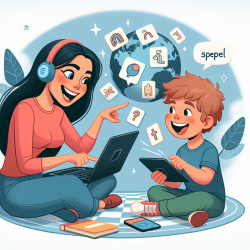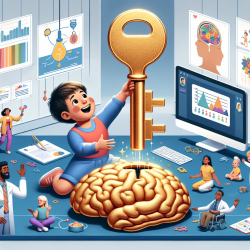Children with Specific Language Impairment (SLI) often face significant challenges in acquiring new vocabulary. One critical area where these challenges manifest is in "fast mapping," a process that allows children to quickly associate new words with their meanings after limited exposure. A recent study by Brenda L. Beverly and Julie M. Estis, titled "Fast Mapping Deficits During Disambiguation in Children with Specific Language Impairment," sheds light on this issue and offers insights that can be instrumental for practitioners working in online therapy settings.
The study found that children with SLI can fast map nonsense words to single, clear referents but struggle significantly during incidental learning. This finding suggests that children with SLI do not consistently infer mutual exclusivity—the assumption that words name one object and objects have one name. This inconsistency slows down their ability to fast map new words to referents.
To improve therapy outcomes, practitioners can implement several strategies based on these findings:
- Repetition and Reinforcement: Children with SLI benefit from multiple exposures to new words and their referents. Practitioners should incorporate repeated practice sessions where the child is exposed to the same word-referent pairs in varied contexts.
- Clear and Distinct Cues: Use phonetically distinct words when introducing new vocabulary. Avoid words that sound similar to familiar object names to reduce confusion and enhance learning.
- Explicit Instruction: Directly teach the concept of mutual exclusivity. Explain to children that new words often refer to unfamiliar objects. This explicit instruction can help them make more accurate associations during fast mapping tasks.
- Visual Supports: Utilize visual aids and tangible objects to support word learning. Visual supports can provide additional context and make it easier for children to understand and remember new vocabulary.
- Interactive Activities: Engage children in interactive activities that require them to use new words in meaningful ways. Activities like storytelling, role-playing, and games can make learning more engaging and effective.
Encouraging further research and staying updated with the latest findings is crucial for practitioners. By integrating evidence-based strategies into their practice, therapists can significantly enhance the vocabulary acquisition and overall language development of children with SLI.
To read the original research paper, please follow this link: Fast Mapping Deficits During Disambiguation in Children with Specific Language Impairment.










